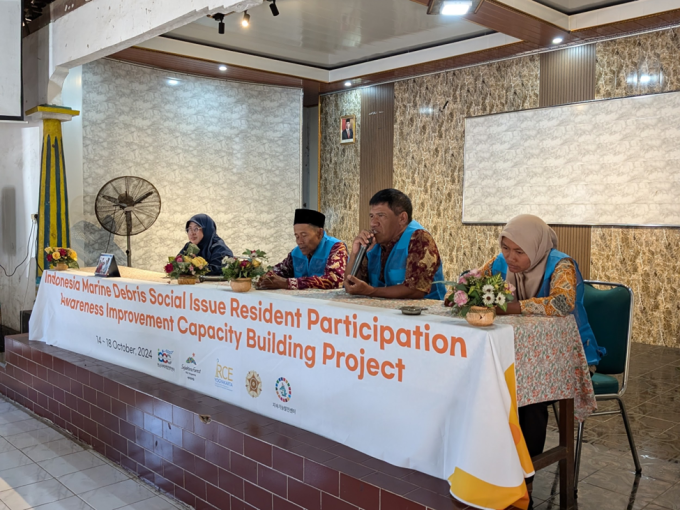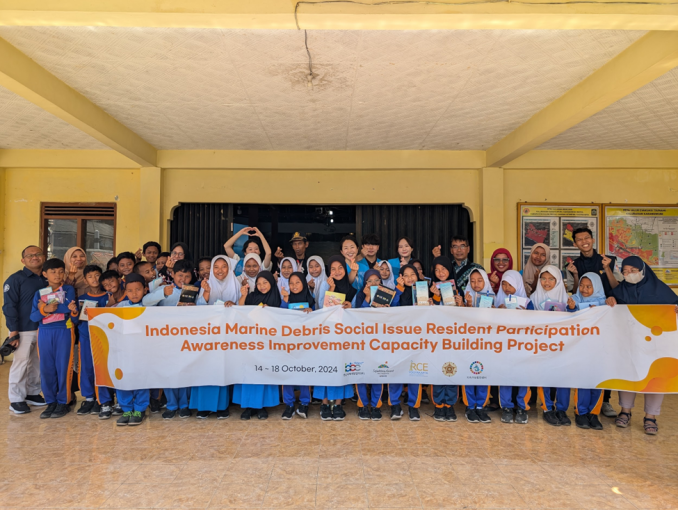Universitas Gadjah Mada (UGM) actively promotes aquatic stewardship through a range of collaborative programmes aimed at raising awareness and encouraging sustainable water management practices. These include initiatives like the joint training with RCE Tongyeong and GNIDCC on marine debris management, which engages local communities and students in preserving marine ecosystems. UGM also partners with international institutions, such as Antioch College, Universiti Malaya, and the Korea-Indonesia Marine Technology Cooperation Research Centre, to conduct ecological education research and advance sustainable practices in Southeast Asia. In collaboration with Indonesia’s Ministry of Marine Affairs and Fisheries, UGM spearheads efforts in marine spatial planning, seagrass mapping, and blue carbon projects—laying the foundation for transformative, long-term aquatic stewardship and global environmental impact.
On October 14-18, 2024, UGM’s Vocational School held the “Community Participation Awareness Improvement on Marine Debris Social Issues in Indonesia”. This event was organized together with RCE Yogyakarta, RCE Tongyeong, and the Gyeongnam International Development Cooperation Center (GNIDCC) to raise awareness and build local community capacity to address marine debris challenges. By engaging all age groups—men, women, and children—it ensures widespread awareness of waste management and fosters a culture of environmental responsibility. After all, building resilience in coastal ecosystems through sustainable water management practices must be tailored to local needs.
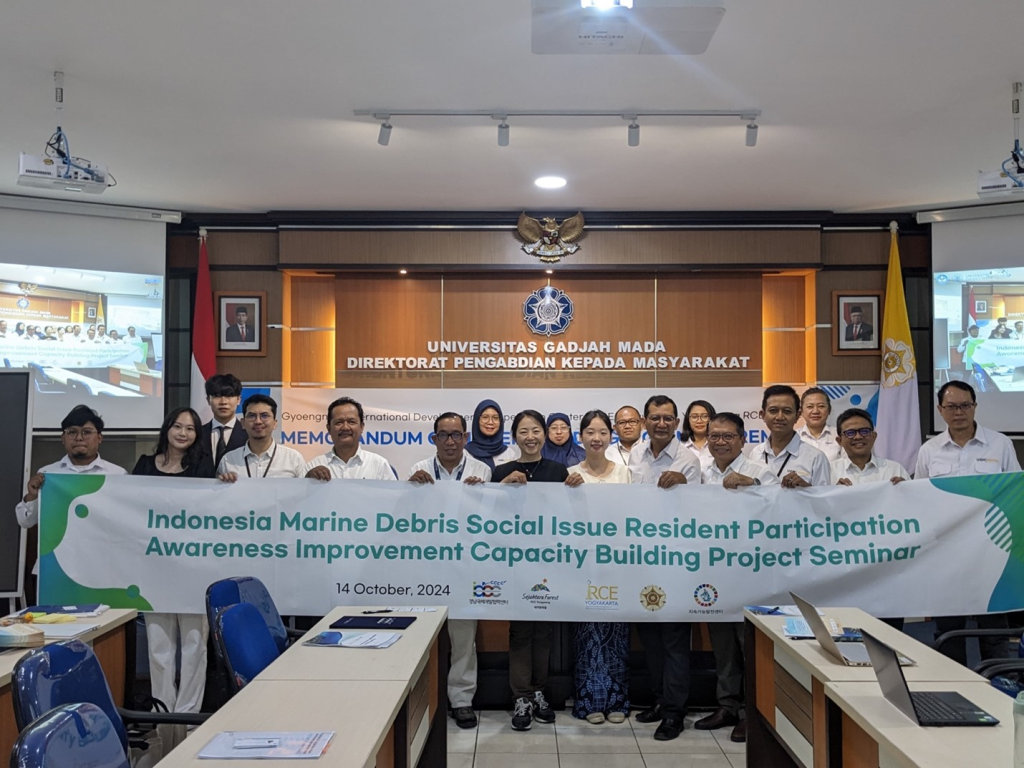
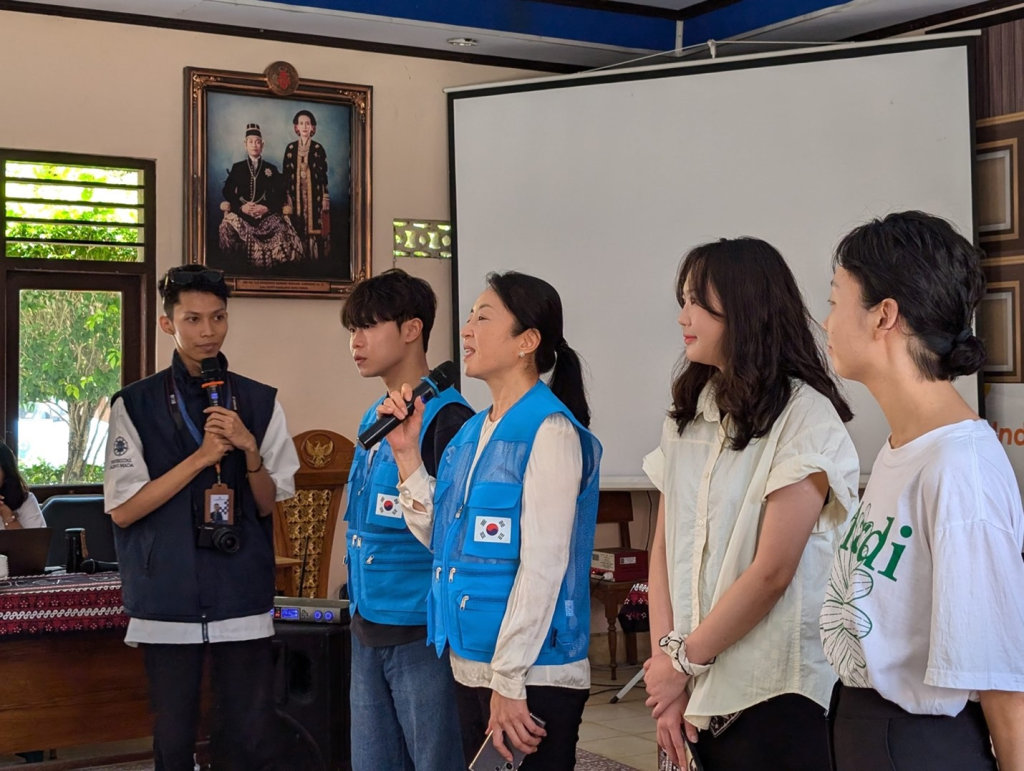
Again with RCE Yogyakarta, and in partnership with RCE Tongyeong and the Gyeongnam International Development Cooperation Center from South Korea, UGM held a hybrid joint training titled ‘Indonesia Marine Debris Social Issue Resident Participation Awareness Improvement Capacity Building Project’ at the UGM Directorate of Community Service. This initiative is part of a larger effort to raise community awareness and participation in addressing marine debris issues in Indonesia.
Both organizations emphasized that community service transcends academic responsibility, representing a shared commitment to fostering meaningful, positive changes in the lives of local communities and promoting sustainable environmental practices.
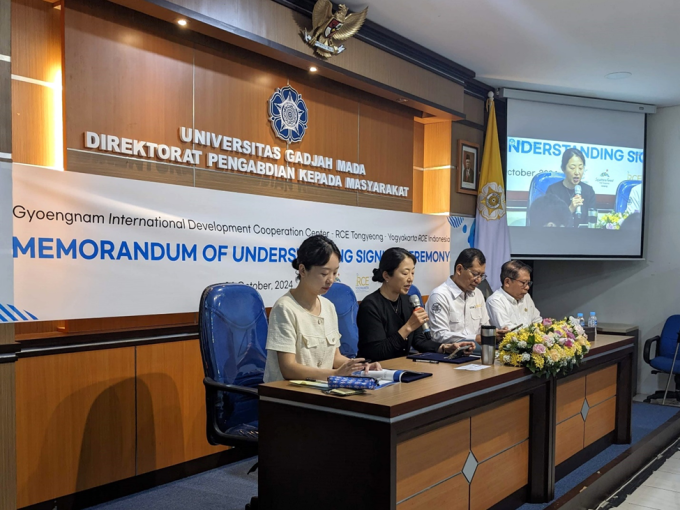
As part of the program, an awareness session was held for the heads of hamlets in Karangwuni Village, highlighting the critical importance of marine cleanliness and its profound impact on both the environment and the well-being of the local community. The sustainability aspect of this agenda involves engaging students to ensure the sea remains clean for future generations. The majority of Karangwuni Village residents are fishermen living in close proximity to the beach, making marine litter a critical issue that affects the sustainability of marine natural resources.
